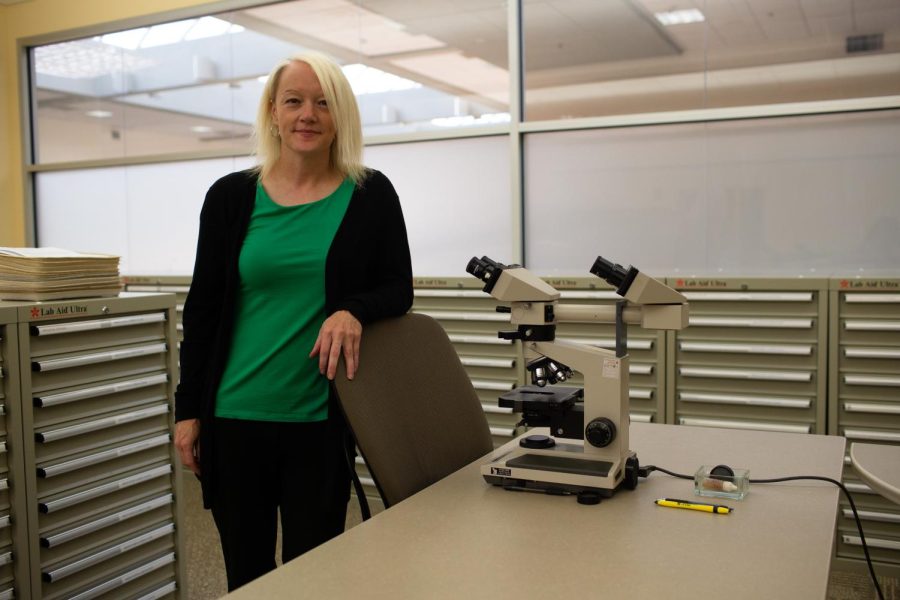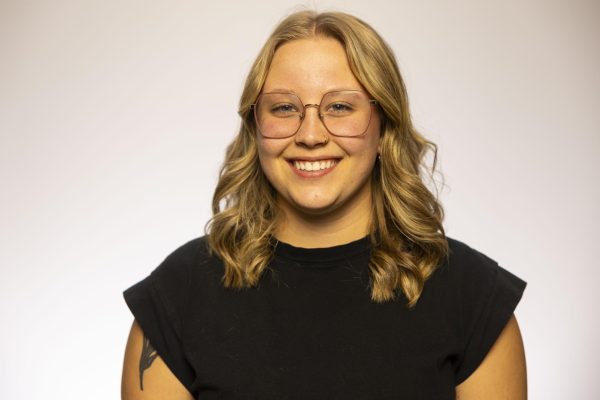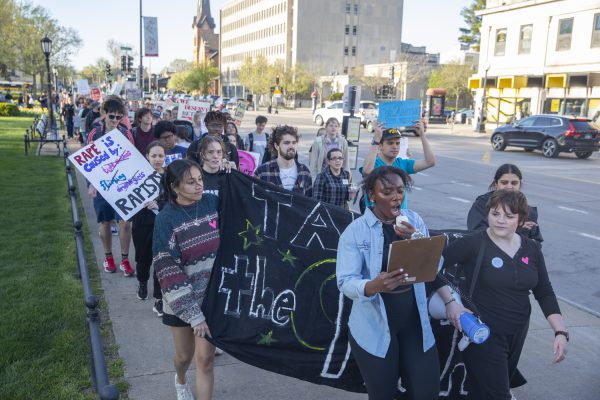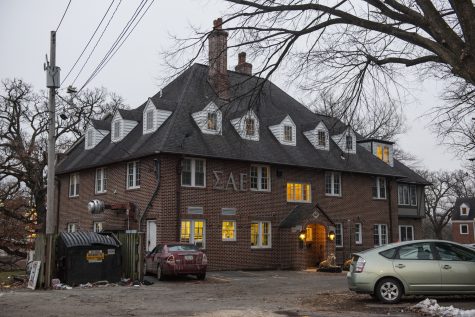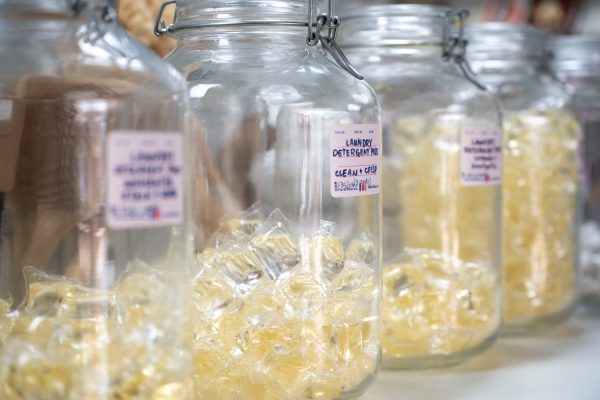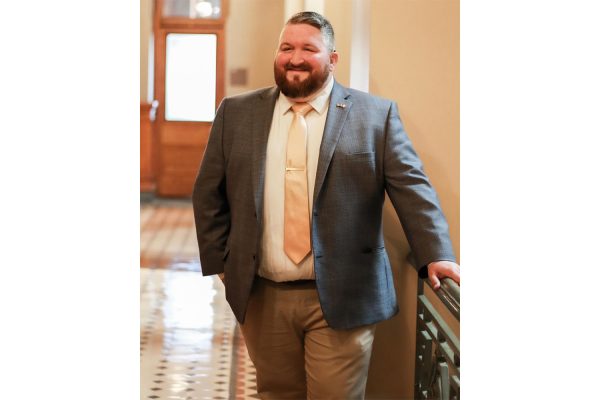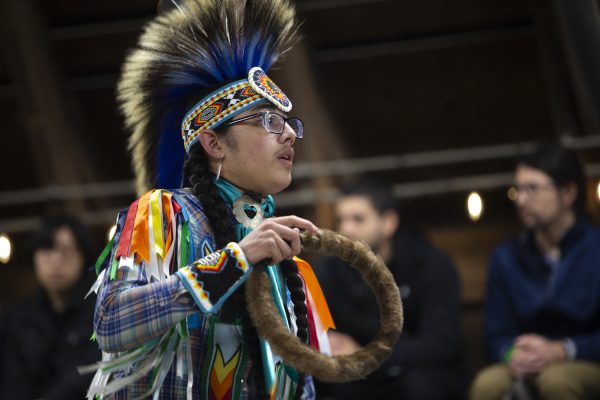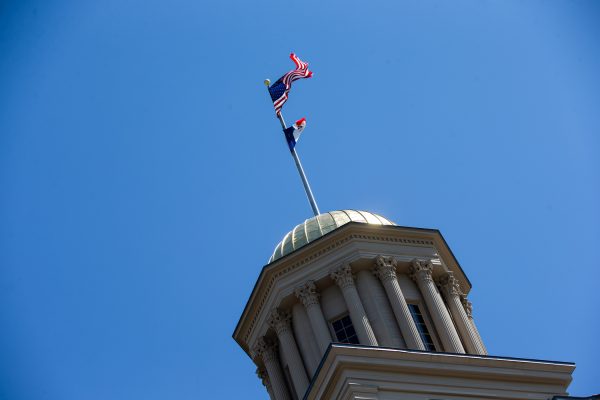UI researchers to investigate a potential cancer cluster in Hudson School Community District
The UI took on the project after more than a dozen teachers in the school district have been diagnosed with breast cancer in the last decade.
Professor Mary Charlton poses in a lab at the State Health Registry of Iowa in Iowa City on Friday, Sept. 30, 2022.
October 2, 2022
Diane Anderson, a retired teacher from Hudson Community School District in Hudson, Iowa, received a breast cancer diagnosis in 2020.
She is one of more than a dozen teachers from the district who have been diagnosed since 2012, according to an email sent to school district families by the school superintendent. Anderson said this news concerned her, so she brought her worries to Ashley Ezzio, the outreach and education coordinator at the Iowa Department of Health.
“I talked with someone at the state public health department, and then they referred me to Dr. Michele West at the University of Iowa,” Anderson said, “She said, ‘If we do a cancer cluster correlation investigation, what we need to do is present this to the superintendent.’”
After being put in contact with researchers at the Iowa Cancer Registry at the UI, Anderson went to Anthony Voss, superintendent of Hudson Community School District. Carol Murphy, a current teacher in the district who also has breast cancer, went with Anderson.
“We brought along two other teachers to meet with Dr. Voss, the superintendent, representing other teachers that have not had breast cancer but are very concerned because of the large number of people that have,” Anderson said.
In an email statement to The Daily Iowan, Voss wrote the district is aware of the concerns but does not want staff members and families to worry.
“It is my responsibility to take employee concerns seriously. I shared this information with our staff and families on Friday,” he said, “Today [Sept. 27], I met with the Cancer Registry. The meeting went well, and I had the opportunity to ask a number of questions. We also discussed the statistical fact that about 13 percent of women will develop breast cancer in their lives.”
Voss wrote it is possible the number of cases in Hudson schools are within the statistical margins for cases in the population. The district is working with its legal team to decide how to share staff information with the Iowa Cancer Registry so UI researchers can examine the situation.
RELATED: Iowa cancer report advises urgent return to cancer screenings after pandemic
“At this time, we are discussing the data set they will need and how best I can provide it to them without violating any employee confidentiality laws,” he wrote.
Mary Charlton, an associate professor of epidemiology at the UI College of Public Health and the director and principal investigator at the Iowa Cancer Registry, will be leading the investigation.
Charlton will investigate whether endocrine-disrupting chemicals are located in the schools. These chemicals have a history of causing cancer and can be found in plastic, cleaners, and personal care products.
Determining whether environmental factors are contributing to breast cancer cases is difficult, Charlton said.
“Being educated or of higher socioeconomic status is actually a risk factor for [breast cancer], and that’s because people with college education or beyond tend to have kids later in life, and having kids later in life is a risk factor for breast cancer,” she said. “So, it’s possible that there is no source causing the cancer in the school, but they all have these similar risk factors.”
The investigation into the cancer cluster will start once employee information is provided to the researchers, Charlton said.
“When it’s a worksite population, it’s a little bit less straightforward,” she said. “Hudson School District will have to tell us a roster of their employees back several years.”
The relative prevalence of breast cancer in women makes it difficult to prove the existence of a cancer cluster, Charlton said. No matter the result of the investigation into this potential cluster, she said, the research will provide valuable insight into breast cancer.
“Even if we can’t find an environmental source or common source, we always learn something through these investigations that we can share back with the community,” she said.



